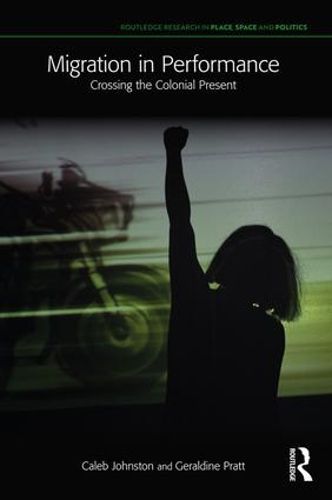Readings Newsletter
Become a Readings Member to make your shopping experience even easier.
Sign in or sign up for free!
You’re not far away from qualifying for FREE standard shipping within Australia
You’ve qualified for FREE standard shipping within Australia
The cart is loading…






This book follows the travels of Nanay, a testimonial theatre play developed from research with migrant domestic workers in Canada, as it was recreated and restaged in different places around the globe. This work examines how Canadian migration policy is embedded across and within histories of colonialism in the Philippines and settler colonialism in Canada. Translations between scholarship and performance - and between Canada and the Philippines - became more uneasy as the play travelled internationally, raising pressing questions of how decolonial collaborations might take shape in practice. This book examines the strengths and limits of existing framings of Filipina migration and offers rich ideas of how care - the care of children, the elderly and each other - might be rethought in radically new ways within less violently unequal relations that span different colonial histories and complex triangulations of racialised migrants, settlers and Indigenous peoples.
This book is a journey towards a new way of doing and performing research and theory. It is part of a growing interdisciplinary exchange between the performing arts and social sciences and will appeal to researchers and students within human geography and performance studies, and those working on migration, colonialisms, documentary theatre and social reproduction.
$9.00 standard shipping within Australia
FREE standard shipping within Australia for orders over $100.00
Express & International shipping calculated at checkout
This book follows the travels of Nanay, a testimonial theatre play developed from research with migrant domestic workers in Canada, as it was recreated and restaged in different places around the globe. This work examines how Canadian migration policy is embedded across and within histories of colonialism in the Philippines and settler colonialism in Canada. Translations between scholarship and performance - and between Canada and the Philippines - became more uneasy as the play travelled internationally, raising pressing questions of how decolonial collaborations might take shape in practice. This book examines the strengths and limits of existing framings of Filipina migration and offers rich ideas of how care - the care of children, the elderly and each other - might be rethought in radically new ways within less violently unequal relations that span different colonial histories and complex triangulations of racialised migrants, settlers and Indigenous peoples.
This book is a journey towards a new way of doing and performing research and theory. It is part of a growing interdisciplinary exchange between the performing arts and social sciences and will appeal to researchers and students within human geography and performance studies, and those working on migration, colonialisms, documentary theatre and social reproduction.